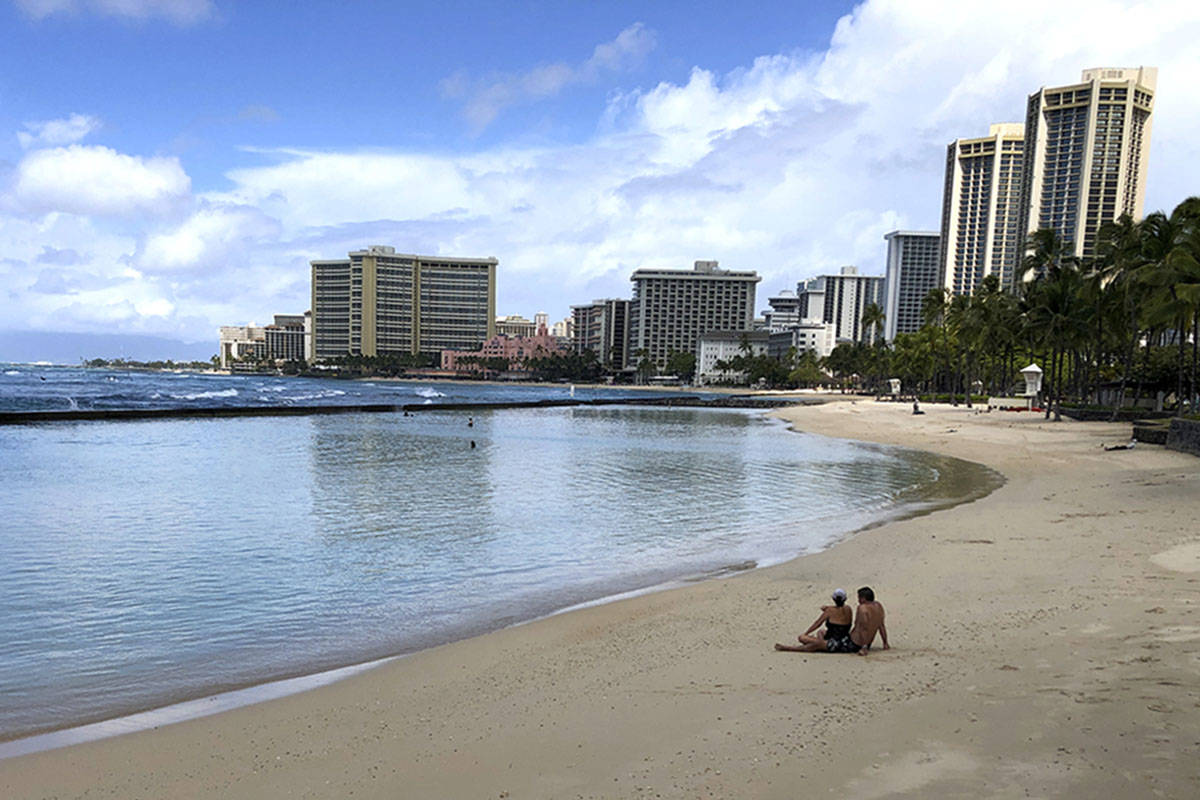Hawaii to waive quarantine for negative COVID-19 tests
HONOLULU — Hawaii Gov. David Ige on Wednesday said that starting Aug. 1, travelers arriving from out of state may bypass a 14-day quarantine requirement if they test negative for COVID-19.
Since late March, Hawaii has been requiring travelers from outside the islands to stay in their hotel rooms or homes for two weeks to prevent the spread of the coronavirus. The move has helped keep disease numbers down, but has also contributed to the collapse of the tourism industry and sent unemployment soaring.
The plan is modeled after Alaska’s, which allows travelers to avoid quarantine if they take a test within 72 hours before arrival and test negative. If the test result is not available by the time a traveler lands, they must stay in quarantine until the result comes in.
Ige hasn’t yet set a time limit for when the tests will need to be done, but he said 72 hours was reasonable.
The governor said the tests, along with screening passengers for high temperatures and virus symptoms when they arrive, were part of a multi-layered approach to preventing the disease’s spread.
“People do need to get back to work, but it must be done in a manner that protects the health of our community,” Ige said at a news conference.
Ige said he expected the number of coronavirus cases to increase, but that Hawaii has boosted its testing and contact tracing capacity to enable it to respond. He said the state may have to reinstate the 14-day quarantine requirement for all arriving travelers if Hawaii experiences a doubling of new cases each week for a four-week period.
Ige said Hawaii continues to discuss establishing “travel bubbles” with Japan, South Korea, Australia and New Zealand that would open up travel between the islands and these countries that all have low infection rates. One of the challenges of doing so, he said, was that the virus continues to increase virtually uncontrolled in other parts of the United States. Ige said Hawaii would have to get the countries to view Hawaii differently from other states in the U.S. to be able to set up these travel bubbles. He said Hawaii has initiated discussions with the State Department and these other countries.
The number of travelers to the islands began to decline sharply in early March as the disease spread across the world. But the tourist count shriveled to just a few hundred per day after the governor imposed the quarantine requirement on March 26.
In April, 4,564 travelers arrived in Hawaii by plane, down from 856,250 during the same month last year. Hotels across the state have temporarily closed, laying off housekeepers and bellhops. Hawaii’s unemployment rate hit 22.6 percent in May, second only to Nevada.
The quarantine has helped control the disease, giving Hawaii the lowest per capita infection rate of any state. As of Wednesday, the islands have had 835 cases and 17 deaths since the start of the outbreak.

















